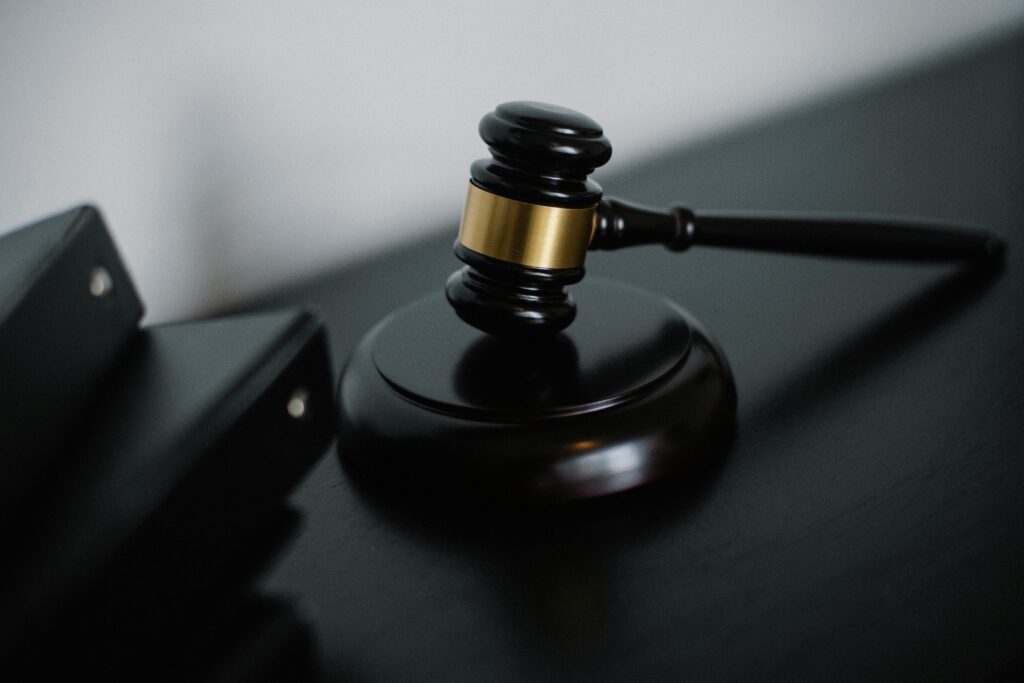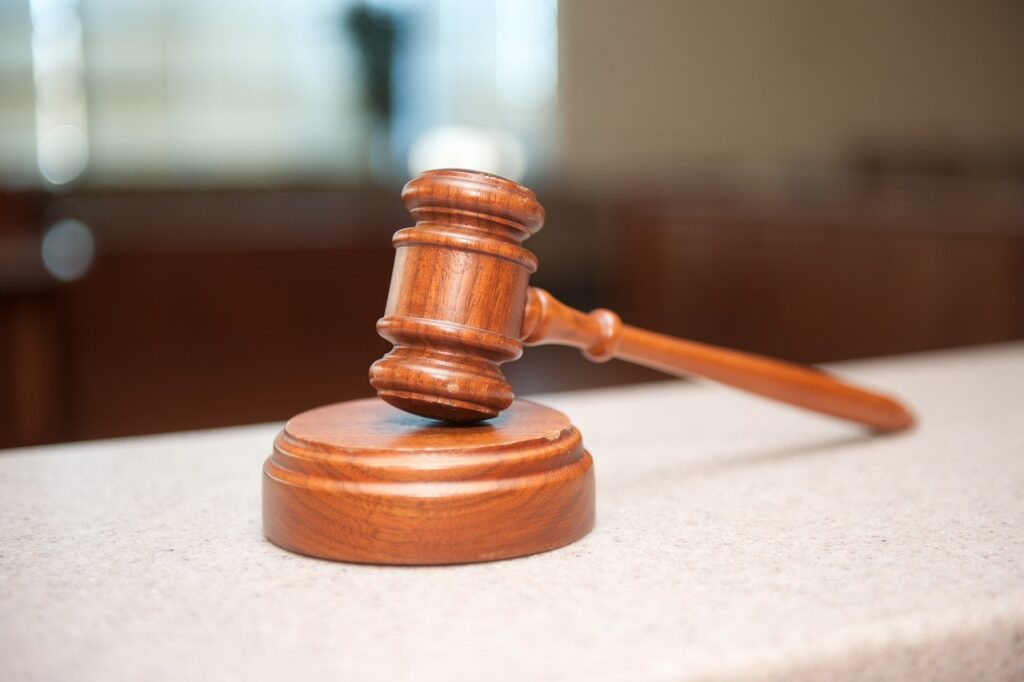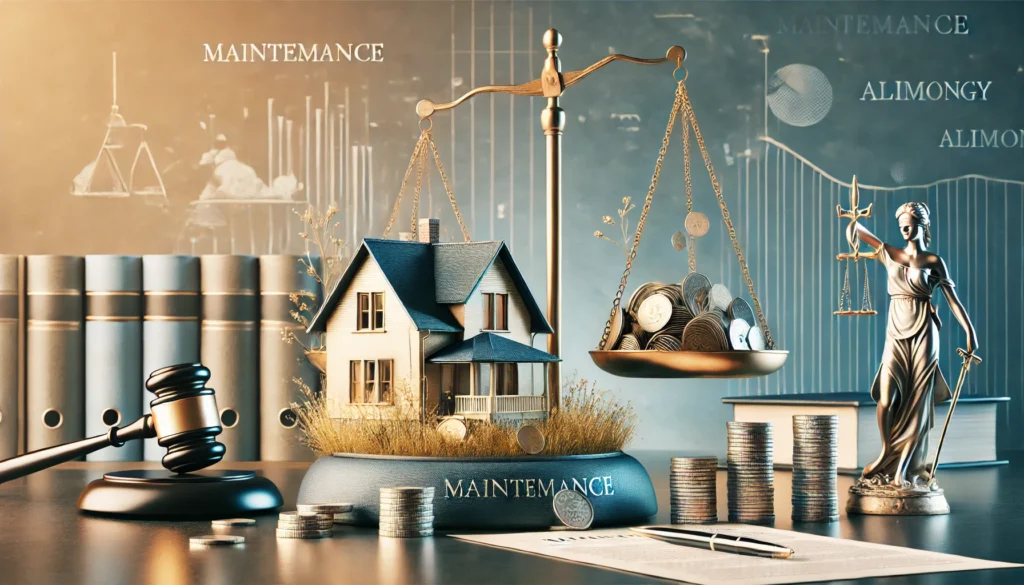Published On: 9th March, 2024
Citation: 1996 AIR 1708, 1996 SCC (3) 342
INTRODUCTION:
A lawyer’s full-time commitment to the legal profession elevates it to a nobler profession. The Advocates Act, of 1961, established by the Bar Council of India established regulations pertaining to the profession in order to preserve its integrity and nobility. A rule that prohibits any full-time salaried employee from practicing law as an advocate in court is BCI Rule 49. The Hon’ble Supreme Court of India upheld this rule in a seminal decision in Haniraj L. Chulani (Dr.) v. Bar Council of Maharashtra and Goa, wherein the Court denied the plea of a physician who wished to practice law.
FACTS OF THE CASE:
- Permanently residing in Bombay, H.L. Chulani began practicing medicine in 1970. While in practice, he enrolled in an LL.B. program and graduated on March 4, 1991, with a Bachelor of Law degree. He then submitted an application to the State Bar Council of Maharashtra and Goa, the party in question, in order to be registered as an advocate in accordance with the Advocates Act, of 1964.
- On July 26, 1991, the appellant filed this motion, arguing that he was entitled to continue practicing medicine while also engaging in the practice of advocacy.
- The appellant’s desire to be registered as an advocate in addition to continuing his medical practice concurrently was turned down by the respondent. Eventually, on November 16, 1992, the appellant received notice that his application had been denied along with a copy of the reasons for the “refusal for award of Sanad.”
- Outraged by the aforementioned denial, the appellant filed Writ Petition No. 2584 of 1992 in the Bombay High Court.
- The petitioner was granted a hearing by a Division Bench of the High Court on December 14, 1992, following which the appellant initiated the current proceedings through a petition for special leave.
- A notice was directed to be sent to the Bar Council of Maharashtra and Goa, with the understanding that the problem would be resolved at the notice stage itself. This directive, dated November 30, 1993, excused the delay in filing the special leave petition.
BRIEF ARGUMENTS OF BOTH THE PARTIES:
Arguments by the Appellant –
- Rule (1), which was created by the Maharashtra Bar Council as a response to Sections 28(2) and 24(1)(e) of the Act, was unlawful and beyond the scope of the Act.
- The rule that forbids someone who meets the requirements to be admitted as an advocate from enrolling as one if they practice another profession—medical practice in this case, for example—is unconstitutional due to the overabundance of legislative power it delegated. In addition, the rule violates Article 19(1)(9) of the Constitution and is not protected by sub-article (6) of the same document because it places unjustified limitations on a citizen’s ability to pursue any career path of his choosing, this law also violates Articles 14 and 21 of the Indian Constitution by attempting to deny the appellant their right to a livelihood in an irrational way.
- A practicing physician’s insistence on being enrolled as an advocate and continuing to practice as both a medical practitioner and an advocate was neither offensive nor illegal. The medical profession is considered a highly respected one, and once the appellant is determined to be eligible for enrollment as an advocate under the Act, the State Bar Council could not have barred him from entering the advocacy profession by establishing such a rule, particularly since the appellant was prepared to swear that he would not practice medicine during court hours.
Arguments by the State Bar Council –
maintained support for the High Court’s ruling, arguing that the State Bar Council’s rule was not immoral and did not violate any of the fundamental rights that the appellant had used to have it removed.
Arguments by the Medical Council of India –
According to the Executive Committee of MCI, the Medical Council of India has no problem with any trained medical practitioner who also holds a registerable, recognized medical certificate practicing both medicine and law concurrently.
The Hon. Supreme Court was presented with the following questions to decide –
- Does the State Bar Council of Maharashtra & Goa’s Rule (I) violate Article 19(1)(9) and is not protected by sub-article (6)?
- Does the contested rule violate Articles 14 and 21 of the Constitution?
- Does the contested rule suffer from the vice of excessive delegation of legislative power and is therefore void and inoperative at law?
Legislation invoked –
1. Article 19(6) of the Indian Constitution prohibits the State from enacting laws pertaining to:
a) the professional or technical qualifications required to practice any profession or to carry on any occupation, trade, or business; or
b) the State’s or a corporation owned or controlled by the State’s carrying on of any trade, business, industry, or service, whether to the full or partial exclusion of citizens or otherwise.
2. Article 21 of the Indian Constitution provides protection of life and personal liberty, saying that no one may be deprived of their life or liberty unless in accordance with the legal process established by law.
3. Section 24(A) of the Advocates Act: Disqualification for enrolment. (1) One cannot be admitted as an advocate on a State roll:
(a) if they are found guilty of a crime involving moral turpitude;
(b) if they are found guilty of a crime under the Untouchability (Offences) Act, of 1955;
(c) if they are fired or removed from their position under the State on any moral turpitude-related charge.
Explanation: In this clause, “State” will have the meaning ascribed to it by Article 12 of the Constitution; provided, however, that the disqualification for enrollment as mentioned above will no longer be in effect two years after his [release, dismissal, or, if applicable, removal].
(2) If someone is dealt with under the Probation of Offenders Act, 1958 after being found guilty, nothing in subsection (1) will apply to them.
4. Specifically, we are concerned with Rule (1) of the Advocates Act, which states: “A person who is otherwise eligible to be admitted as an Advocate but is either in full or part-time service or employment or is engaged in any trade, business, or profession shall not be admitted as an Advocate.”
INTERPRETATION OF THE JUDGEMENT:
- In rendering its decision, the court thoroughly examined the Act’s sections and rules. To avoid repetition, I will not list every part and rule that the court referred to, read, and interpreted.
- In this regard, the respondent, the State Bar Council of Maharashtra & Goa, has drafted rules in the exercise of its authority under Section 28(2)(d) read with Section 24(1)(e) of the Act. The relevant rule (1) is as above.
- As one of the most powerful pillars of democracy, the judiciary is largely protected by the Constitution and is tasked with interpreting and applying the laws enacted by our legislature in the most appropriate manner and spirit. The court recognized the critical role that a well-organized, structured, and cohesive legal profession plays in bolstering the administration of justice in India.
Understanding the value of an independent or integrated bar, the Indian Bar Committee was established by the Indian government in 1951. Among other recommendations made by the committee were the creation of an All India Bar Council, State Bar Councils, a common roll of advocates, and total autonomy for the Bar with regard to issues pertaining to membership qualifications, discipline, and other related issues. The Indian Advocates Act, of 1961 was the new name for the 1959 Legal Practitioners’ Bill, which was later adopted by Parliament and went into effect on May 19, 1961. The Advocates Act codified and amended the laws pertaining to legal practitioners and established the All India Bar. The Bar Council of India and State Bar Councils acquired full autonomy and the authority to enroll and discipline advocates, which had previously been under the purview of the High Courts. The Bar Councils are now elected bodies representing advocates.
- The State Bar Council is composed of the following committees: (a) one or more disciplinary committees; (b) a five-member executive committee; (c) a three-member enrollment committee; and any additional committees that may be deemed necessary.
- The Bar Council of India is tasked with protecting the rights, privileges, and interests of advocates as well as establishing guidelines for appropriate behavior and manners in the workplace.
Every Bar council is entrusted by Sec. 6 and 7 with the functions including admission of persons as advocates on its roll, preparation, and maintenance of such roll, safeguarding the rights, privileges, and interests of advocates on its roll, and doing all things necessary for discharging the above functions.
- In Chapter V, “Conduct of Advocates,” Section 35 states that a State Bar Council may refer a case to its disciplinary committee for resolution if it has reasonable suspicions that an advocate on its rolls has engaged in professional or other misconduct upon receiving a complaint or for other reasons.
After receiving a complaint or otherwise having reason to believe that an advocate whose name is on a State roll has engaged in professional or other misconduct, the Bar Council of India may appeal a decision made by the disciplinary committee of a State Bar Council under Section 37. Another provision of Section 36 states that the Bar Council of India may refer a case to the disciplinary committee upon referral.
- The aforementioned clauses make it evident that, among the many goals of the Advocates Act, one of the main ones is to offer superior legal services to all branches of the government. The Bar Councils established under the Act are tasked with overseeing the general standards of ethics and decorum in the profession and with disciplining their members for transgressions.
Members must carry out all the duties assigned to them by or under the Act, as well as everything required to fulfill the obligations outlined in Section 6, even as the state Bar Councils are granted disciplinary jurisdiction to punish their members for misconduct while also being tasked with protecting their rights, privileges, and interests.
Regarding the Bar Council of India, its responsibilities are broader in scope. These include establishing guidelines for advocates’ professional behavior and manners, protecting their rights, privileges, and interests, overseeing and managing the State Bar Council’s operations, promoting legal education, accrediting universities, coordinating legal aid for the impoverished, and carrying out any other duties assigned by the Act. Additionally, the Council undertakes any necessary actions to fulfill the duties listed in section 7.
The functions of the State Bar Councils and the Bar Council of India are divided, although overlaps are inevitable due to the aforementioned requirements. The State Bar Councils have the authority to establish rules under Sections 15 and 28 of the Act, while the Bar Council of India is obligated under Section 49.
- The parliament enacted the Act, established a number of authorities at the national and state levels, and gave them the authority to establish regulations in order to guarantee the highest caliber of legal services in India. In the process, it delegated authority over certain fundamental substantive matters to a State Bar Council and provided provisions for things like eligibility for entry into the profession (Section 24), disqualification for enrollment (Section 24-A), authority to grant admission (Sections 25 and 26), authority to remove any name from the roll (Section 26-A), etc.
- The State Bar Council of Maharashtra and Goa, the respondent, has established regulations to control admission for individuals wishing to pursue a career in law. These regulations are the result of the Act’s Section 28(2)(d) and Section 24(1)(e) provisions.
- The rule in question, which is being challenged in these proceedings, is founded on the idea that an advocate must dedicate all of his time and energy to the legal profession. It states unequivocally that an otherwise eligible individual cannot be enrolled as an advocate if he practices any other profession. Due to the aforementioned rule provision, the State Bar Council, the respondent, has refused the appellant’s request to enter the legal profession. The appellant is currently a practicing physician and surgeon, and he is willing to stagger the time he spends in each profession throughout the day, as stated by his knowledgeable senior counsel.
CONCLUSION:
The rule is being challenged in light of Article 14, which states: Equality before the law: The State shall not deny to any person equality before the law or equal protection of the laws within the territory of India.
It is illegal to discriminate against someone based on their religion, race, caste, sex, or place of birth. The rule creates a distinct class of professionals who practice other professions and forbids members of this class from entering the legal field as long as they insist on practicing their other professions concurrently with the legal profession.
The challenge raised against the rule in light of Article 14 must therefore be unsuccessful because the aforementioned classification has a legitimate connection to the goal being pursued, which is the effectiveness of advocates who are members of the legal profession and the improved administration of justice for which the legal profession collaborates with the judiciary.
[i] Indian Kanoon- http://www.indiankanoon.org
[ii] Scribd – https://www.scribd.com/document/570279265/DR-HANIRAJ-L-CHULANI-V-BAR-COUNCIL-OF-MAHARASHTRA-GOA
[iii] Case Summary: (Dr.) Haniraj L. Chulani vs Bar Council Of Maharashtra & Goa 1996 AIR 1708, 1996 SCC (3) 342 – Prime Legal
[iv] Should legislators be allowed to practice in court? – Legal Alert (wordpress.com)




